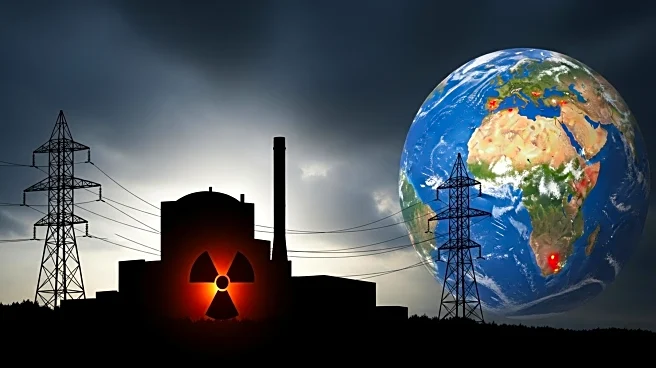What's Happening?
Ukrainian President Volodymyr Zelenskyy has accused Russia of endangering global security following a Russian shelling attack that severed power to the Chornobyl nuclear plant. The plant, which suffered a catastrophic meltdown in 1986, lost power after a nearby substation was shelled. The UN's atomic energy watchdog reported that emergency diesel generators are currently supplying electricity to the plant's confinement structure. This incident follows a similar power loss at the Russian-occupied Zaporizhzhia nuclear plant. The United States is reportedly considering providing Ukraine with intelligence for long-range missile strikes on Russian energy infrastructure.
Why It's Important?
The power cut to Chornobyl underscores the ongoing risks to nuclear safety amid the conflict in Ukraine. The potential for nuclear incidents poses a significant threat not only to Ukraine but to global security. The U.S. involvement in providing intelligence for strikes on Russian infrastructure could escalate tensions further. European countries are also on high alert for hybrid warfare tactics, including drone incursions and sabotage, as highlighted by recent incidents in Poland and Estonia. The situation reflects the broader geopolitical struggle and the potential for further destabilization in the region.
What's Next?
The international community, particularly the European Union and NATO, may need to enhance their defensive measures against hybrid threats. The U.S. decision on providing long-range missiles to Ukraine could significantly impact the conflict's dynamics. Additionally, the G7's commitment to targeting Russian oil exports suggests increased economic pressure on Russia, which could influence its military strategies.








